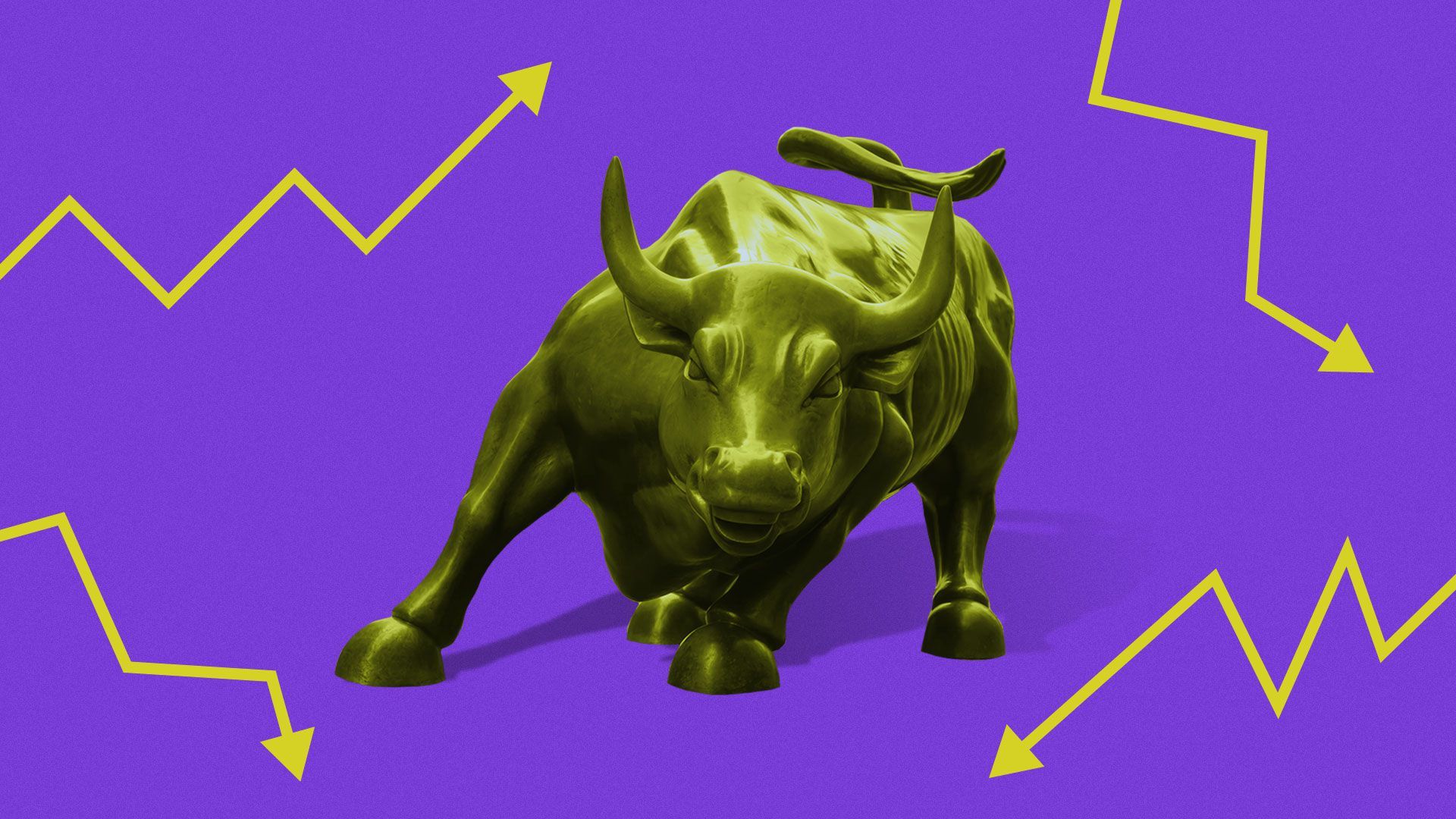Investors see more volatility ahead as coronavirus hammers markets
Add Axios as your preferred source to
see more of our stories on Google.

Illustration: Eniola Odetunde/Axios
The stock market continues to bounce back and analysts and investors are lining up on opposing sides of the market's big new question — whether stocks have hit the bottom. The one thing they both agree on is that there will be significant volatility ahead.
On one side: The rebound from this recession may come at warp speed because the fall came at warp speed, Jim Paulsen, chief investment strategist at the Leuthold Group, tells Axios.
- The extraordinary speed at which the market has sold off combined with the response from the Fed and government support could mean March 23, when the S&P 500 had fallen 33% from its previous record high to 2191, set the low.
What it means: In a typical recession, economic data slowly start to worsen and often the stock market reacts slowly to the evidence.
- Only when enough data clearly convince everyone that a recession has arrived does the stock market ultimately suffer a major collapse, and policy officials finally reverse course with "aggressive shock-and-awe policies" to stop the bleeding.
- This year, by contrast, "The stock market did not do the normal bear market foreplay — it just went right to the end right away. So did bond spreads, commodities, real yields, and importantly, so did policies," Paulsen says.
On the other side: The damage from the pandemic and nationwide business shutdown is not yet quantifiable, and companies have provided no numbers to suggest that the hits they've taken to their earnings even justify the market being as high as it was on March 23.
- There has been little in the way of positive economic data and the U.S. may already have lost all 20 million of the jobs the economy gained back during the 11-year recovery from the 2007–2009 recession, Alicia Levine, chief strategist at BNY Mellon Investment Management, tells Axios.
- "This is an enormous, enormous blow that will take some time to recover from."
Plus, the market's 23% rise since March 23 is actually a contrarian indicator, Levine argues.
- "Bear markets don’t end when everybody’s looking to buy the dip. Bear markets end when sentiment’s pretty negative and people are rushing out."
The big picture: Bullish investors are starting to dip their toes back into the market, bears are still expecting the worst, and sentiment is being wholly dictated by the latest developments of the coronavirus. That means big moves are likely to continue for some time.


The VIX, which tracks the stock market's expectations of volatility based on S&P 500 index options, has been consistently declining from the record high of 85 it touched on March 18 to just over 43 at market close on Wednesday.
- But even the latest levels are historically high and around triple the market average for the past five years.
- "The VIX at 45 is telling you that there are 2-3% swings every day," BNY's Levine says.
Go deeper: 1 in 10 Americans believe economy will never return to normal from coronavirus
